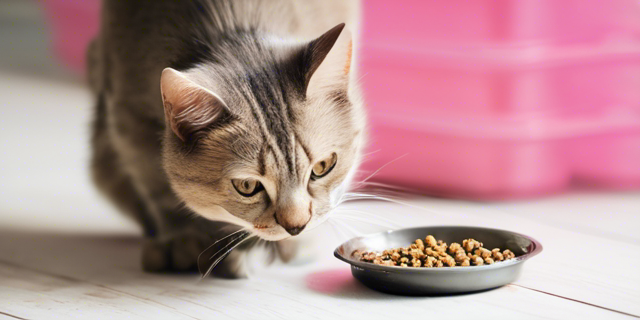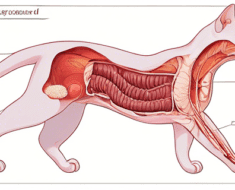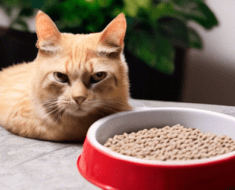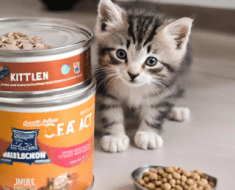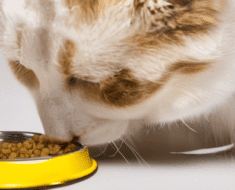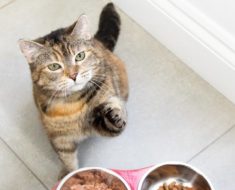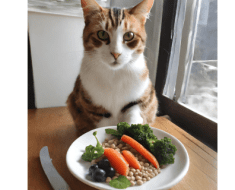Cats are beloved members of our families, and just like any other family member, their health and well-being are of utmost importance. One common health issue that cat owners may encounter is constipation. While there can be various causes for constipation in cats, including medical conditions, diet plays a crucial role in preventing and managing this issue. In this comprehensive guide, we’ll delve into the world of dry cat food and explore what options are best suited for alleviating constipation in our feline companions.
Understanding Constipation in Cats
Constipation occurs when a cat has difficulty passing stool or has infrequent bowel movements. This can be a discomforting experience for the cat and may lead to further health complications if not addressed promptly. Understanding the causes and symptoms of constipation is essential for effective management.
Causes of Constipation
1. Dietary factors: A lack of fiber in the diet can contribute to constipation in cats. Additionally, diets high in processed ingredients may not provide the necessary nutrients for proper digestive function.
2. Dehydration: Insufficient water intake can lead to dry, hard stools, making them difficult to pass.
3. Lack of exercise: Sedentary lifestyles can affect gastrointestinal motility, leading to constipation.
Symptoms of Constipation
1. Infrequent bowel movements: Cats experiencing constipation may have difficulty passing stool regularly.
2. Straining during defecation: Visible signs of discomfort or straining in the litter box may indicate constipation.
3. Hard, dry stools: Stools that are dry and firm are indicative of constipation in cats.
Role of Diet in Managing Cat Constipation
Diet plays a pivotal role in managing and preventing constipation in cats. A well-balanced diet with adequate fiber and moisture content is essential for maintaining digestive health.
Importance of Fiber
Fiber aids in promoting regular bowel movements by adding bulk to the stool and facilitating its passage through the digestive tract.
Adequate Hydration
Ensuring that your cat receives sufficient moisture through their diet is crucial for preventing dehydration and maintaining soft stools.
Evaluating Dry Cat Food for Constipation
When selecting dry cat food to alleviate constipation, several factors should be taken into consideration to ensure optimal digestive health for your feline companion.
Key Ingredients to Look For
1. High-fiber content: Opt for dry cat foods that contain sources of soluble and insoluble fiber, such as whole grains and vegetables.
2. Protein sources: Quality protein sources, such as chicken or fish, provide essential nutrients for overall health and well-being.
3. Moisture content: While dry cat food inherently contains less moisture compared to canned varieties, selecting brands with higher moisture content can aid in hydration and digestion.
Reading Cat Food Labels
Familiarizing yourself with reading cat food labels can help you make informed decisions about the nutritional value of the product and its suitability for managing constipation.
Top Dry Cat Food Brands for Constipation
Several reputable brands offer dry cat food formulas specifically designed to address constipation and promote digestive health.
Brand 1
Overview: Brand 1 offers a range of dry cat food formulas tailored to meet the nutritional needs of cats prone to constipation.
Key Features:
– High-fiber blend promotes regular bowel movements
– Quality protein sources support muscle health
– Added moisture content for enhanced hydration
Pros:
– Clinically proven effectiveness in managing constipation
– Wide range of flavor options to suit various preferences
– Affordable price point for budget-conscious pet owners
Cons:
– Some cats may be sensitive to certain ingredients
– Transition period required for optimal results
Brand 2
Overview: Brand 2 is renowned for its commitment to quality and innovation in pet nutrition, offering a diverse range of dry cat food options.
Key Features:
– Unique fiber blend promotes optimal gastrointestinal function
– Balanced nutrition supports overall health and well-being
– Trusted brand with a history of positive customer feedback
Pros:
– Veterinarian-recommended formula for cats with digestive issues
– Easily digestible ingredients suitable for sensitive stomachs
– Convenient packaging sizes available for households of all sizes
Cons:
– Premium price point may be prohibitive for some consumers
– Limited availability in certain regions
Brand 3
Overview: Brand 3 prioritizes natural ingredients and holistic nutrition in its dry cat food formulations, catering to the specific needs of cats with digestive sensitivities.
Key Features:
– Grain-free recipe minimizes potential allergens and irritants
– Enhanced fiber content promotes healthy digestion and regularity
– Responsibly sourced ingredients ensure quality and sustainability
Pros:
– High palatability encourages even the pickiest eaters to enjoy mealtime
– Gentle formula suitable for cats with food
Cons:
– Transition period required for some cats to adjust to new dietary changes
– Availability may be limited in certain regions
– Higher price point compared to conventional dry cat food options
FAQ-
1. Q: Can dry cat food alone alleviate constipation in my cat?
– A: While dry cat food with appropriate fiber and moisture content can help manage constipation, it’s essential to ensure a balanced diet and address any underlying health issues in consultation with a veterinarian.
2. Q: How long should I wait to see improvement after switching my cat to a new dry food for constipation?
– A: Every cat is unique, so the timeframe for seeing improvement may vary. Generally, gradual improvements in bowel movements and overall comfort should be observed within a few weeks of transitioning to a new diet.
3. Q: Are there any specific ingredients I should avoid in dry cat food if my cat suffers from constipation?
– A: Cats prone to constipation may benefit from avoiding diets high in fillers, artificial additives, and overly processed ingredients. Opting for high-quality, natural formulations with adequate fiber and moisture content is recommended.
4. Q: Can I mix dry cat food with wet food to help manage constipation?
– A: Yes, incorporating canned food into your cat’s diet can increase overall moisture intake, aiding in digestion and alleviating constipation. However, it’s essential to maintain a balanced diet and monitor your cat’s response to dietary changes.
5. Q: How can I encourage my cat to drink more water to prevent constipation?
– A: Providing multiple water sources throughout the house, using water fountains or adding flavorless broth to their water bowl can entice cats to drink more. Additionally, feeding wet food or adding water to dry food can increase overall fluid intake.
6. Q: Is it safe to make homemade cat food to address constipation?
– A: Homemade cat food can be an option for managing constipation, but it’s crucial to ensure it provides adequate nutrition and meets your cat’s dietary requirements. Consulting with a veterinary nutritionist to formulate balanced recipes is recommended.
